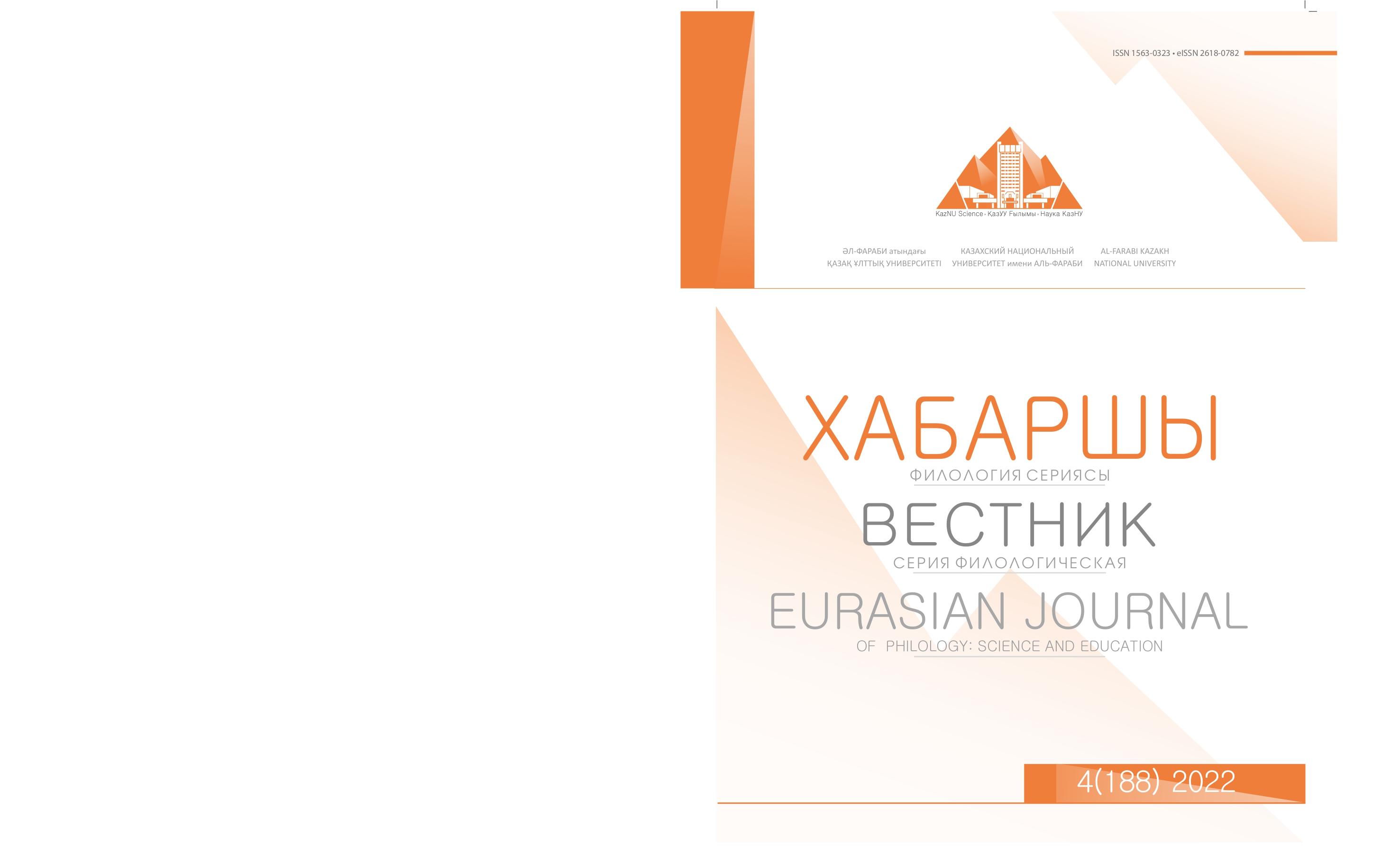Teaching students of the specialty "international law" in professionally-oriented vocabulary of the russian language on the basis of a complex of tasks
DOI:
https://doi.org/10.26577/EJPh.2022.v188.i4.019Abstract
The purpose of this article is to describe a set of tasks for the development of vocabulary for students of "international law" in the professionally oriented Russian language. Scientific novelty lies in the fact that a number of exercises and tasks are presented, which is aimed primarily at developing and improving students' vocabulary based on new textual material. This approach will allow students to develop the ability to extract and process the information received in accordance with the goal from various international documents. In addition, they will be able to perceive professionally-oriented information by ear and highlight the main and secondary in accordance with the communicative task of the text. Based on professional vocabulary, they can argue their point of view, clarify or supplement information in compliance with the norms of speech etiquette. As a result of the study, we found that, firstly, in order to improve vocabulary, it is necessary to develop and give students more than 10-15 exercises both as pre-text and post-text tasks. Secondly, the development of professionally oriented vocabulary becomes a key mechanism in the formation of the communicative competence of a future specialist in international law. Thirdly, it is the development of students' vocabulary that increases motivation, both in the development of legal disciplines and in the study of the Russian language. The practical significance of the article lies in the fact that the presented system of exercises aimed at mastering the vocabulary of the specialty language in the Russian language can be used for seminars and practical classes.






